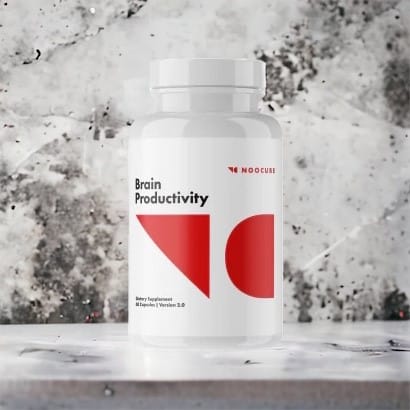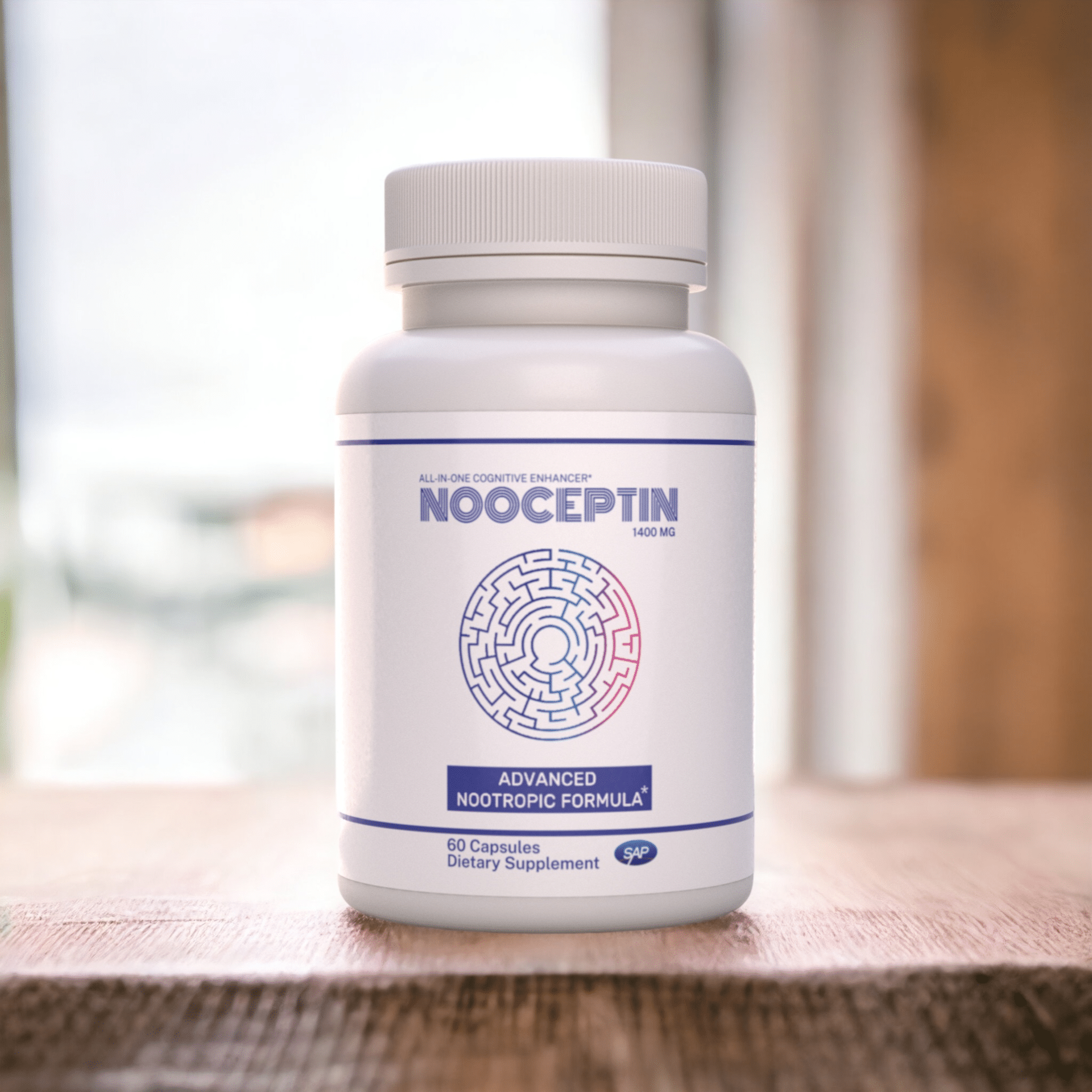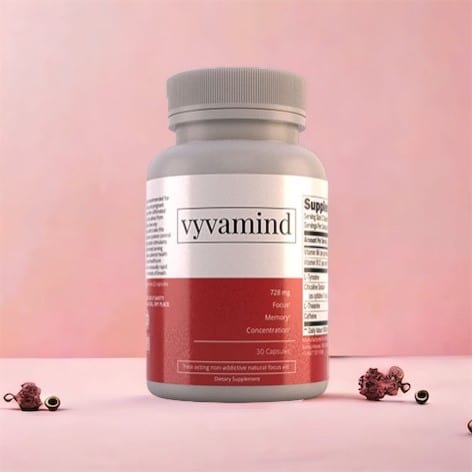The Gut-Brain Axis - Unlocking Mental Performance
If you're searching for ways to boost mental performance or relieve symptoms of mental health disorders, you might be surprised to learn that a healthy gut could be a game-changer.
The gut-brain axis, a complex network of communication between the gut and brain, plays a significant role in our mental wellbeing. This connection is so intertwined that scientists now believe the balance of bacteria in our gut (the gut microbiome) could impact everything from our mood to cognitive abilities.
The Gut-Brain Axis: A Summary
- The gut-brain axis is a communication network between our digestive tract and brain, influencing both mental and overall health.
- Our gut houses trillions of microorganisms (the gut microbiome) that play a crucial role in this interaction.
- Imbalances in the gut microbiome can impact mental health and contribute to conditions like anxiety, depression, and neurological disorders.
- Improving gut health might boost mental performance and brain health.
- A balanced diet rich in fiber, lean proteins, healthy fats, and diverse fruits and vegetables can support a healthy gut microbiome.
- Regular physical activity promotes a diverse and robust gut microbiota.
- Supplements such as probiotics and prebiotics might enhance gut health and, in turn, positively impact brain function.
- The field of gut-brain axis research is rapidly growing, providing more insights into the powerful link between gut health and mental performance.
The Gut-Brain Axis: Why It Matters
So, what's the deal with the gut-brain axis, and why should you care about it? Research shows that the gut microbiome communicates with the brain through various channels, including immune system pathways, the vagus nerve, and microbial metabolites. Changes in this microbiome can influence the brain and may lead to anxiety, depression, and even neurological disorders. That means your mental performance and brain health could be linked to the trillions of microorganisms residing in your gut.
The good news is that you can take actionable steps to optimize your gut-brain axis, potentially improving mental performance and overall brain health. How do you do this? Let's start with diet: a balanced one rich in fiber, lean proteins, healthy fats, and various fruits and vegetables can nourish your gut microbiota. Regular physical activity can also help, as it promotes a diverse and abundant gut microbiota.
But what about supplements? Probiotics (beneficial bacteria) and prebiotics (food for these bacteria) could potentially enhance gut health and, in turn, brain function. However, always consult with a healthcare provider before introducing any new supplements into your routine.
In essence, the gut-brain axis is a burgeoning field of research that is shedding light on the intricate relationship between our gut health and mental performance. So, if you're aiming to boost your cognitive abilities or mood, don't overlook the power of a healthy gut—it might just be the secret weapon you've been seeking.
Decoding the Gut-Brain Axis and its Microbiome
The gut-brain axis, a bi-directional communication system, connects your digestive system to your brain. Your gut, often dubbed the 'second brain,' houses a complex ecosystem known as the microbiome, which is teeming with trillions of microorganisms (1). The gut-brain axis microbiome influences a wide range of physiological and pathological processes in the body and mind, from immunity to mental health (2).
Unraveling the Complexity of the Microbiome-Gut-Brain Axis
The relationship between gut microbes and the brain, known as the microbiome-gut-brain axis, is a dynamic interaction that can affect both physical and mental health. The term "gut microbiome brain axis" refers to this intricate cross-talk and emphasizes the essential role the gut microbiome plays in brain health (3).
Disorders of the Gut-Brain Axis
Disruptions in the gut-brain axis can lead to a multitude of disorders such as irritable bowel syndrome (IBS), anxiety, depression, and autism (4,5). A strong correlation exists between gut-brain axis disorders and neuropsychiatric disorders, indicating a new link between gut–brain axis and neuropsychiatric disorders (6).
Gut-Brain Axis: The Foundation of Mental Health
Research has demonstrated the gut-brain axis's critical role in mental health. "The gut-brain axis: how the microbiome influences anxiety and depression" is a topic of extensive research, shedding light on the pivotal role gut health plays in mood regulation (7,8).
The Microbiota-Gut-Brain Axis and Viruses
Interestingly, the microbiota-gut-brain axis has been shown to interact with various viruses, potentially affecting mental health. These findings suggest that certain viruses can alter the gut microbiome, potentially impacting brain function (9).
The Gut-Brain Axis and Neurodegenerative Diseases
The microbiome, probiotics, and neurodegenerative diseases are interconnected through the gut-brain axis. This connection opens up new avenues for potential treatments for conditions like Alzheimer's and Parkinson's diseases (10).
The Gut-Brain Axis: Gateway to Optimized Mental Performance
The gut-brain axis's role in mental performance is profound. The gut-brain axis mental health link demonstrates the impact of gut health on cognitive functions, such as memory, learning, and decision-making abilities (11,12).
The Microbiota-Gut-Brain Axis: A Behavioral Perspective
The neuroendocrinology of the microbiota-gut-brain axis gives us unique insights into behavioral and mood disorders. It is hypothesized that by modulating the gut microbiota, we may be able to treat these disorders effectively (13).
The Role of Serotonin in the Brain-Gut-Microbiome Axis
A significant proportion of the body's serotonin, a critical neurotransmitter affecting mood and happiness, is produced in the gut (14). As per the 2014 study, "Serotonin, tryptophan metabolism, and the brain-gut-microbiome axis," the gut microbiota influences serotonin production, thus playing a pivotal role in mood regulation (15).
Probiotics, Prebiotics, and the Gut-Brain Axis
Probiotics and prebiotics are known to modulate the gut-brain axis by altering gut microbiota composition, thus influencing brain function and mental health (16).
Probiotics and the Gut-Brain Axis
Certain strains of probiotics have been shown to exert positive effects on mental health. For example, Lactobacillus and Bifidobacterium species can positively impact mood and cognitive function (17). Probiotics for gut-brain axis health have become a focal point in the research community.
Prebiotics and the Gut-Brain Axis
Prebiotics, dietary fibers that serve as food for beneficial gut bacteria, also have potential to modulate the gut-brain axis and positively impact mental health (18).
Strategies to Improve the Gut-Brain Axis
Improving gut health can lead to better mental performance and overall brain health. Here are several actionable strategies to optimize your gut-brain axis:
Dietary Approaches
Maintaining a balanced diet rich in fiber, lean proteins, healthy fats, and various fruits and vegetables can help nourish your gut microbiota and improve gut-brain axis health.
Physical Activity
Regular physical activity has been linked with positive changes in the diversity and abundance of gut microbiota, which can subsequently influence the gut-brain axis (19).
Consider Supplements
While they're not a substitute for a balanced diet, gut-brain axis supplements like prebiotics and probiotics could potentially enhance your gut health, thus improving brain function. Always consult with a healthcare provider before starting any new supplement routine.
Conclusion
Understanding the gut-brain axis and its role in mental health is crucial for anyone interested in improving cognitive performance. So, whether you're looking to enhance your mental agility or aiming to alleviate symptoms of a mood disorder, don't forget to consider your gut health – it might just hold the key to unlocking your brain's potential.
Recommended Nootropics

NooCube
BEST OVERALL
4.9 / 5 Stars

Nooceptin
BEST FOR LEARNING
4.8 / 5 Stars
Vyvamind
BEST FOR PERFORMANCE
4.8 / 5 Stars
References
- Carabotti M, Scirocco A, Maselli MA, Severi C. The gut-brain axis: interactions between enteric microbiota, central and enteric nervous systems. Ann Gastroenterol. 2015;28(2):203-209.
- Yano JM, Yu K, Donaldson GP, et al. Indigenous bacteria from the gut microbiota regulate host serotonin biosynthesis. Cell. 2015;161(2):264-276.
- Martin CR, Osadchiy V, Kalani A, Mayer EA. The Brain-Gut-Microbiome Axis. Cell Mol Gastroenterol Hepatol. 2018;6(2):133-148.
- Cryan JF, Dinan TG. Mind-altering microorganisms: the impact of the gut microbiota on brain and behaviour. Nat Rev Neurosci. 2012;13(10):701-712.
- Mayer EA, Padua D, Tillisch K. Altered brain-gut axis in autism: comorbidity or causative mechanisms?. BioEssays. 2014;36(10):933-939.
- McLean MH, Dieguez D, Miller LM, Young HA. Does the microbiota play a role in the pathogenesis of autoimmune diseases?. Gut. 2015;64(2):332-341.
- Foster JA, Rinaman L, Cryan JF. Stress & the gut-brain axis: Regulation by the microbiome. Neurobiol Stress. 2017;7:124-136.
- Fung TC, Vuong HE, Luna CDG, et al. Intestinal serotonin and fluoxetine exposure modulate bacterial colonization in the gut. Nat Microbiol. 2019;4(12):2064-2073.
- Dinan TG, Cryan JF. Gut-brain axis in 2016: Brain-gut-microbiota axis - mood, metabolism and behaviour. Nat Rev Gastroenterol Hepatol. 2017;14(2):69-70.
- Sarkar A, Lehto SM, Harty S, Dinan TG, Cryan JF, Burnet PWJ. Psychobiotics and the Manipulation of Bacteria-Gut-Brain Signals. Trends Neurosci. 2016;39(11):763-781.
- Wang HX, Wang YP. Gut Microbiota-brain Axis. Chin Med J (Engl). 2016;129(19):2373-2380.
- Clarke G, Grenham S, Scully P, et al. The microbiome-gut-brain axis during early life regulates the hippocampal serotonergic system in a sex-dependent manner. Mol Psychiatry. 2013;18(6):666-673.
- Galland L. The gut microbiome and the brain. J Med Food. 2014;17(12):1261-1272.
- O'Mahony SM, Clarke G, Borre YE, Dinan TG, Cryan JF. Serotonin, tryptophan metabolism and the brain-gut-microbiome axis. Behav Brain Res. 2015;277:32-48.
- Singh RK, Chang HW, Yan D, et al. Influence of diet on the gut microbiome and implications for human health. J Transl Med. 2017;15(1):73.
- Kim N, Yun M, Oh YJ, Choi HJ. Mind-altering with the gut: Modulation of the gut-brain axis with probiotics. J Microbiol. 2018;56(3):172-182.
- Hill C, Guarner F, Reid G, et al. Expert consensus document. The International Scientific Association for Probiotics and Prebiotics consensus statement on the scope and appropriate use of the term probiotic. Nat Rev Gastroenterol Hepatol. 2014;11(8):506-514.
- Gibson GR, Hutkins R, Sanders ME, et al. Expert consensus document: The International Scientific Association for Probiotics and Prebiotics (ISAPP) consensus statement on the definition and scope of prebiotics. Nat Rev Gastroenterol Hepatol. 2017;14(8):491-502.
- Mailing LJ, Allen JM, Buford TW, Fields CJ, Woods JA. Exercise and the Gut Microbiome: A Review of the Evidence, Potential Mechanisms, and Implications for Human Health. Exerc Sport Sci Rev. 2019;47(2):75-85.

